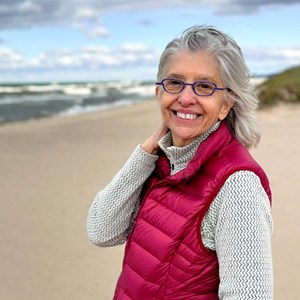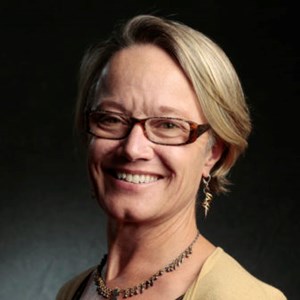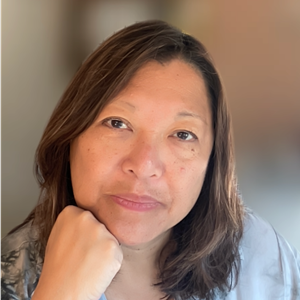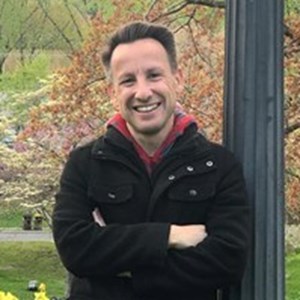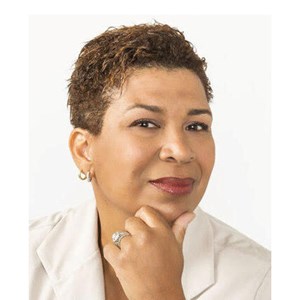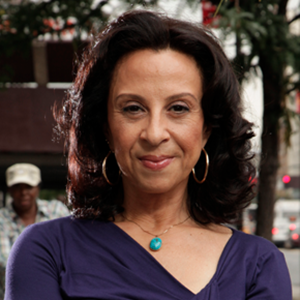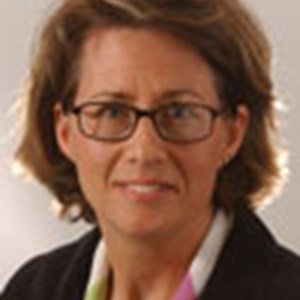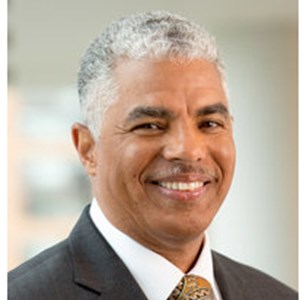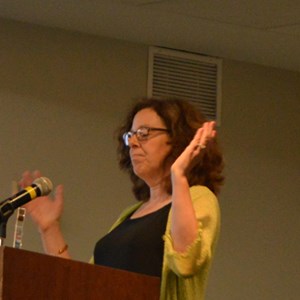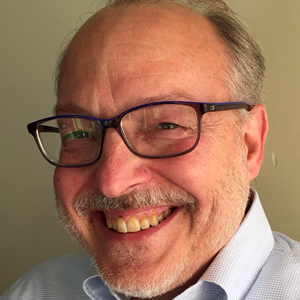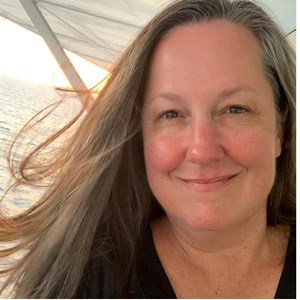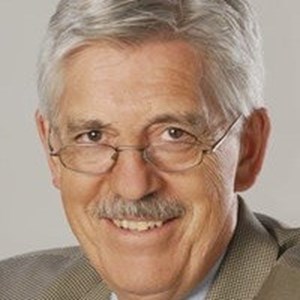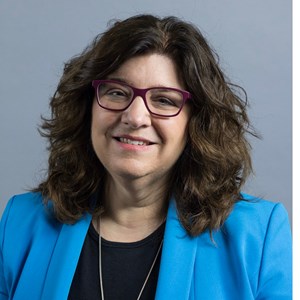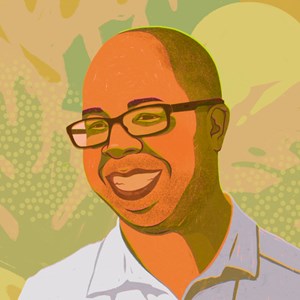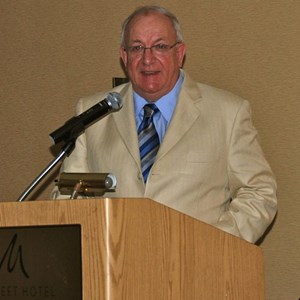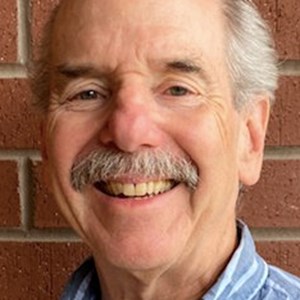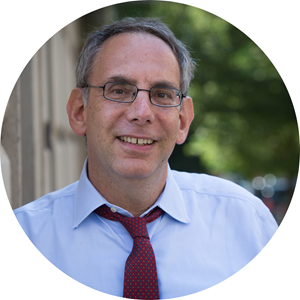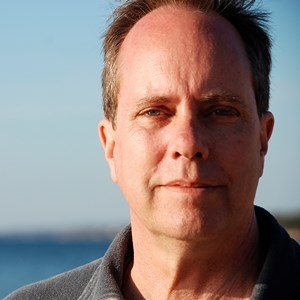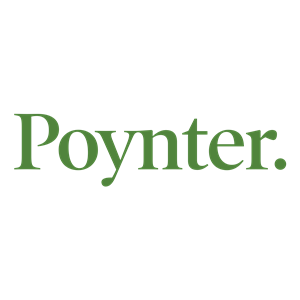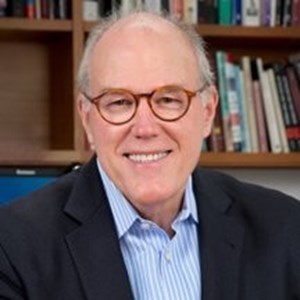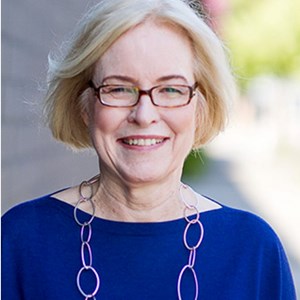Listen: Neenah Ellis Acceptance Speech - Leo C. Lee Award 2025
Leo C. Lee Award Winner Neenah Ellis on Community Voices & Public Radio
On June 27, 2025, Neenah Ellis was presented with PMJA's Leo C. Lee Award. Below you'll find a recording of her introduction by Luke Dennis as well as her acceptance speech. The text of the speech is below.
Neenah Ellis - Leo C. Lee Award 2025
Acceptance speech at the Kauffman Foundation Center in Kansas City, MO
PMJA annual conference, June 27, 2025
++++++++++++++++++++++++++++++++++++++++++++++++++++++++++++++++++++++
Okay, hi everyone. My name's Luke Dennis, I'm the general manager of public radio station WYSO in Yellow Springs, Ohio. And it's my great honor to introduce my friend, and mentor, Neenah Ellis, who's the winner of this year's Leo C. Lee Award. I hope that each of you has a moment like this where you get to celebrate your important person in your life, your mentor.
I've been working with Neenah Ellis since 2012, when I joined the station as the development director. I took over the general manager duties from Neenah in 2019, so that she could work full-time in the Center for Community Voices at WYSO, which she created. It's a joy for me to say a few words about my mentor and friend.
Sometimes we meet people who change the course of our lives, and for me Neenah is one of those people. I was living in the village of Yellow Springs, Ohio -- which has a population of 3,500 people, it's 30 minutes from Dayton -- when Neenah arrived at WYSO in 2009. We actually call it “Why-So,” everyone who listens to it calls it Why-So, so I'll call it Why-So with you.
I remember the excitement around her arrival, because there was a widespread sense across the community, even among somewhat casual listeners like me, that Why-So was ailing and needed help. Neenah proved to be exactly what was needed. It wasn't because she had worked for NPR and produced wonderful stories for the network, or because she'd written bestselling books. She brought those skills and relationships with her and they did prove to be useful. But really, it was because she knew in her bones from the moment she arrived that the way to heal the station was to invite the community back into the station. To share our platform with local voices, to go back to our station's roots, to honor and dignify local people by showing that their stories were just as important as what was happening in Washington or in New York City or Chicago or L.A.
Mentors are people that we learn from, right? So here are some of the things that I learned from Neenah. Radio is about connection. The human voice, it's the most beautiful thing. Our role in the community is to build community. Every listener is important. There were so many times that I saw her drop everything she was doing -- and she was always busy -- because some unexpected visitor would show up at our station and she would take them on a tour for an hour and introduce them to every single staff member, whoever they were. Every listener's important. She taught me that the history of our station is special. Going back to the late 1950s, when three Antioch College undergraduate students put the station on the air, she taught me that I too should learn our history and celebrate it. And now I'm the person who tells our history to anyone who will listen. She taught me hundreds of smaller things too, like how to make a good 30 second promo and how to write for the ear instead of sounding like a failed academic, which I kind of was when I arrived, and did not sound like a human speaking. So as I said at the beginning, it's a joy to introduce to you Neenah Ellis, the winner of this year's Leo C. Lee Award. This award is richly deserved by her. Those who don't yet know Neenah might say, boy, what an honor for her to receive an award that's been received by luminaries like Susan Stamberg and Ira Glass and Dave Isay and Linda Wertheimer and Carl Kassel and all these people. But I'm telling you that Neenah actually knows all those people, and I know what those people are thinking. They're thinking, my God, what an honor that I received the award that now Neenah Ellis is receiving from PMJA. So, would you please give Neenah Ellis a big round of applause?
Neenah Ellis:
Thanks to my colleague Luke Dennis.
I’ve been wondering why I got this award. My career in radio hasn’t had a lot of fireworks. I mostly kept my head down, worked hard and stuck to a few guiding principles for fifty years.
But I think Community Voices is the unique part of my story in public radio - so I want to explain why we did it, how we did it and what the result has been.
Several years before I became the GM, the station was struggling for survival because a manager - pushed by the license holder to make more money – took local programs off the air in favor of national ones, and in our community, that was a BIG mistake. Some listeners revolted, created an organization called KEEP WYSO LOCAL and withheld their donations, which created a cascade of misery for the station: lost listeners, lost members, lost staff and most importantly, lost trust. On top of that, the signal was weak, dead air was common, and the facilities were in the basement of an abandoned building – WYSO needed a makeover. When I arrived in 2009, it was losing 250 thousand dollars a year.
But still - - you could hear echoes of its funky and spunky self - it still had traces of a homegrown sound, a sense of the community. That year, the CPB ombudsman published a piece and called WYSO “the little station that could.”
So, it seemed to me, there was hope that it could be revived.
WYSO had a proud history. It was put on the air by Antioch College students in 1957 and they invited the community in to make programs with them - and everyone – Students, factory workers, professors, teachers, musicians, writers - everyone got radio training. This was not happening everywhere in public radio. At other places, things were much more buttoned down, copying commercial radio. At WYSO, students and volunteers made music shows, news programs, and documentaries, they did live remote broadcasts, recorded concerts and lectures, made radio dramas - all of it. They identified as part of nationwide movement that was against the war in Viet Nam, but strong in favor of civil rights, feminism, and the labor movement –at home and abroad. All those topics were taken up and - most importantly - the door was open. There was a new crop of students and volunteers trained every semester.
WYSO got CPB accreditation in 1974 –because it was experimental and the people who worked there were unafraid. Jo Ann Wallace - was program director in the early 70s- one of only four women in the country doing that job. Julia Reichert, a trailblazing Academy award-winning filmmaker, was on the air then and training people, too - Randy Thom, who became the head of sound design for Lucas Film was an engineer, Gary Covino, who worked with Ira Glass before this American life he was there, Ellin O’Leary who founded Youth Radio in the Bay area was there, Kim Aubrey, technical wizard who built a film production lab in SF was there - and many many more folks who went on to make important contributions to public radio, emboldened by the freedom they were given as young people. WYSO was legendary in public radio when I first heard about it at NPR in the 1980s and when I got to Yellow Springs, I realized it was beloved by its listeners.
So – knowing that love was deep - we opened the doors of WYSO to the community again and started training people again to make their own radio. We taught reporting and interviewing, we loaned out recording gear and gave free studio time and editing software. And once they finished our 6-month course, we took their pitches or assigned them stories and as soon as we were able, we PAID THEM, too. We didn’t ask them to volunteer. We still don’t. Within a couple of years, community producers were contributing regularly and they’ve made hundreds of stories and more than 25 different series since we taught the first class in 2011. And what their stories have in common is that they present people talking about themselves – not just being talked about. And these are people whose stories are not usually heard.
This has transformed our station.
WYSO is in southwest Ohio – near Dayton –between Columbus and Indianapolis. It’s rust belt country – amid cornfields. Manufacturing jobs have declined for generations and our stories usually often touch on the results – and now, I’m happy to say – something of a rebirth.
The first series we did was with incarcerated women. Then we heard from adults with disabilities who were struggling to be seen. Then a series with high school students – most of them from minority neighborhoods. Then, a series about military veterans -a huge population in Ohio who return to civilian life struggling to figure out where they fit in. And when Dayton became home to the worst opioid overdose crisis in the country – we did a series with the families of addicts. We believe in facing the hard truths, in listening to the hard truths.
There were also stories of hope: young people in our rural counties, a lot of them women who want to be farmers. Owners of small businesses keeping their heads above water during the pandemic. And immigrants over several who have come to Dayton for a better life.
A project close to my heart – which exemplified what community voices could be - was called Re-Entry Stories – produced by Mary Evans who came to WYSO on a fellowship right out of prison - and produced that series for five years. Thousands of people come out of prison every year in Ohio and have a hard time getting their feet on the ground and getting a fair chance at starting over. I can’t imagine anyone else doing this project – she passed away unexpectedly a week ago at age 42 and we are broken hearted to lose her. I’m happy to get to say her name to all of you.
But today, my colleagues at the Center for Community Voices – Will Davis and Chris Welter have several of our legacy series up and running – and a new one called Haitians in the Heartland – produced by Haitian residents in danger of losing their protected status. And Lee Wade, who is here this week thanks to PMJA’s Open Doors project, has just launched a new series called Translucent about the trans community in our area. (Lee stand up)
A big reason we have been able to make these changes is that WYSO is now completely independent. We bought our own license in 2019 – and as a result the Center for Community Voices is thriving. It’s got multi-year foundation funding and some of the series have their own underwriters, too. Our listeners often name Community Voices as the reasons they give to the station.
They hear the difference between then and now and they hear themselves, because WYSO sounds more like the community than ever before and we think that’s why we are growing year over year - and Ohio is very conservative place.
Another plus: five of our staff members - out of 30 – including Luke Dennis - came to WYSO through Community Voices training.
So, Community Voices has transformed our staff, our sound, doubled our revenues and membership and realigned our priorities. We’ve been able to make the change that all public radio stations have grappled with. We all talk about what’s called “community engagement” but at WYSO are doing more than holding so-called “community conversations.” We are opening the door and passing the microphone and creating a community of local producers.
Let me end by talking about love. People don’t often use the word love when they talk about journalism and public radio. They talk about facts and truth and democracy and leave love out of the equation, but for us, it’s there every day. Our station is beloved and we love the radio station - It’s history, its purpose, the community it serves.
Me, personally, I love radio as a creative medium. You hear more than words and music – you hear people breathe and think. And let me remind you - there’s truth in the silence. There is time and hope in the silence. Try to leave it there. Don’t always go tightening things up.
And speaking of love - I want to mention my husband a great radio writer and host– named Noah Adams. He co-hosted All Things Considered for many years from the 80s to the early 2000s. He grew up in Kentucky and left college before he graduated. It’s unlikely that he would get hired at NPR today – or at any of your stations because of that but someone at NPR saw his talent and understood that he brought a different perspective and opened the door for him. He always loved and respected the listeners – he is always on their side – and always looked for stories about people who didn’t get heard.
And finally - my parents …they were born to Croatian immigrants on the south side of Chicago, who spoke no English when they came as teenagers. My parents eventually ran a small, one-thousand watt radio station in rural Indiana – where they learned what a radio station can do for a small community. I got my start there and I thank them every day.
So, thank you to PMJA for this unimaginable honor. Thanks to all you reporters and editors and producers for the incredibly hard work you do every day. I hope you have taken the time to figure out why you are in public radio. No doubt it has to do with someone or something or someplace you love.
Cling to that, remember that.
Believe in who you are and what you are doing.
Embrace the hardest things that come at you
with that love
and
don’t be afraid.
Leo C. Lee award winners
-
-
-
-
-
-
-
-
-
-
-
-
-
-
-
Jonathan Kern
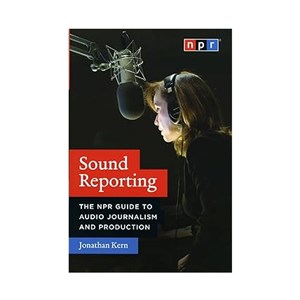 Author: Sound Reporting: The NPR Guide to Audio Journalism and Production2011
Author: Sound Reporting: The NPR Guide to Audio Journalism and Production2011 -
-
-
-
-
-
-
-
-
-
-
-
-
-
-
-
-
-

